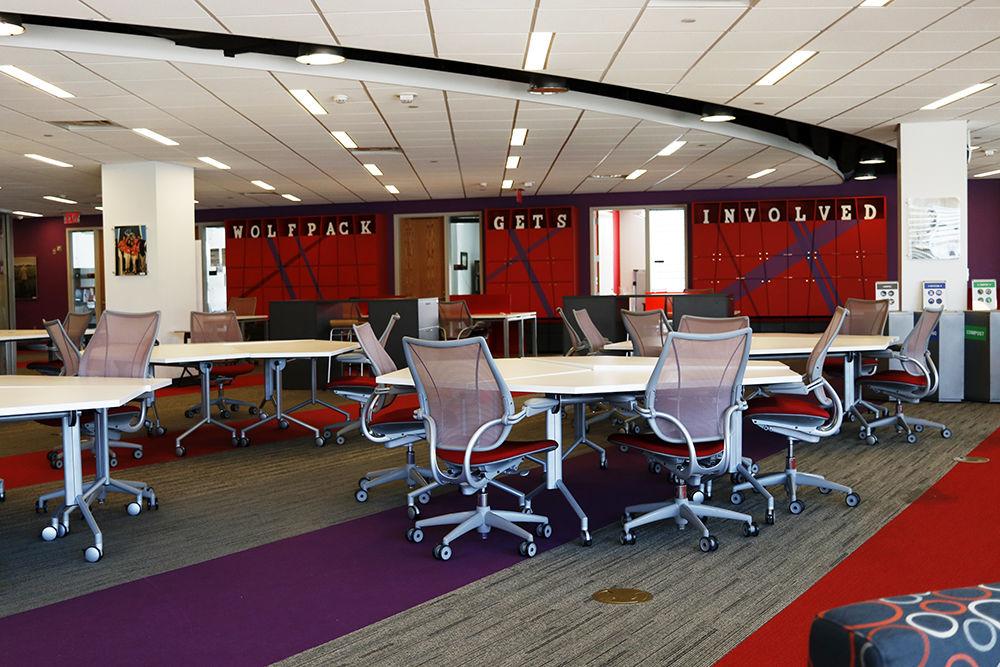On Sept. 21, the second and first external candidate for the vice chancellor and dean of the Division of Academic and Student Affairs (DASA) position, Steven Girardot, participated in an open forum and Q&A presentation as a part of the interview process. Girardot has worked as associate vice provost of undergraduate education at Georgia Institute of Technology since 2013, though he has been working at Georgia Tech since 2000.
Girardot’s virtual interview process spanned Sept. 21-22, and he is the second of three candidates to undergo the two-day process. The first candidate, Lisa Zapata, was appointed the interim vice chancellor and dean of DASA in August 2019, and participated in the interview process on Sept. 2-3 and. The third candidate has not yet been announced and will interview next week, beginning Sept. 29, according to Louis Hunt, senior vice provost for enrollment and management services.
The entire campus community can provide feedback on each candidate through the open forums, but the provost and chancellor will make the final decision on who is hired.
Background and Career
Girardot earned two degrees from Georgia Tech: a B.S. in chemical engineering and an M.S. in chemistry. He later earned a Ph.D. in chemistry and environmental health and a M.S. in public health in epidemiology, both from Emory University.
Girardot said he came to Georgia Tech very academically-minded, but his experiences outside of the classroom are what helped him accept his identity as an LGBTQ+ student. He recalled a specific conversation with a Georgia Tech faculty member who asked him “why he couldn’t have all that” he wanted out of life if he came to terms with his identity as a gay man. It was that conversation that set him on a path of doing more in his professional career.
Girardot has over 19 years of experience in higher education, serving as both the assistant vice provost and associate vice provost of undergraduate education at Georgia Tech University for the past eight years.
Some of his recent work at Georgia Tech includes relaunching the career center to include co-op and internship programs, refiguring living and learning communities to best connect students with campus and creating a more coordinated program for first generation and limited income students. He has also helped launch Georgia Tech’s “First Year Fall Abroad Program” and supported the Complete College Georgia initiative since it was implemented statewide in fall 2011.
Girardot said that the Complete College Georgia initiative is a proud point of his, and the first year retention rate at Georgia Tech has consistently been 97% for the past five years. In 2011, the six-year graduation rate was 82%, and it is now on track to hit 91% in fall 2020. In the future, he is working toward a campus wide effort to close the gap of the underrepresented minority graduation rate and reducing it from 6% to 4%.
What is DASA?
“It’s clear to me that DASA is a very important part of your campus culture,” Girardot said.
He demonstrated this with a chart of all the university offices that DASA supports and is supported by.
“The reality is that you don’t need to build bridges at NC State because you have brought these things together in a very strategic way,” Girardot said.
According to Girardot, illustrating the relationship between DASA and all the other campus entities was important for visualizing how COVID-19 would transform what NC State will do in the future and how it is important that all these offices are included in conversations about racism, diversity and inclusion, wellness and mental health moving forward.
DASA, next steps and building on success
Girardot said if he were to come into this role, he would use a process called imprisiative inquiry, which is a concept that draws on thinking positively about things you’ve done really well, things you’re excited about, your successes and taking that as a starting point rather than focusing on things that haven’t gone well.
Girardot said his vision for the position as vice chancellor and dean of DASA would be to provide access, opportunity and support for all NC State students to succeed. In describing his 10-year vision for DASA, Gridiort divided his goals into three categories: community, experiences and support.
The first steps to achieving these goals, according to Girardot, will include doing a lot of listening and meeting with a lot of people. He said his goal is to meet in some way with every single DASA employee to build relationships and establish communication with all stakeholders in DASA. Additionally, he wants to include students, faculty and staff in those discussions.
His other initiatives will include prioritizing ongoing initiatives for anti-racism, diversity, equity and inclusion, navigating COVID-19 and preparing for post-COVID-19 transformation.
A full itinerary of Girardot’s interview process can be found here. For more information about the finalist interviews, visit the DASA website.








